Australian Capital Territory
All forms of gambling in the Australian Capital Territory, including casinos, are regulated by the ACT Gambling and Racing Commission. It is an independent authority established under section 5 of the Gambling and Racing Control Act 1999. The Canberra-based Commission administers the gambling laws in the territory and regulates the activities of casinos, and all betting and gambling establishments, as well.
The Gambling and Racing Control Act 1999 is the main gambling legislation in the territory although it has been amended multiple times over the years. Its latest version came into effect on December 1, 2019. However, all rules and regulations regarding casinos – licensing, taxation, etc., are described in full in the Casino Control Act 2006 and the Casino Control Regulation 2006 set up under this Act. According to the latest republication of the Casino Control Act 2006, effective from October 2, 2018:
“(1) Only 1 casino licence may be in force under this Act at any particular time. (2) The casino licence is to apply to 1 casino only.”
The casino operating license is granted by the ACT Government represented by Commission and the Attorney-General, head of the Justice and Community Safety Directorate. Pursuant to Section 41 of the Casino Control Act 2006 individuals must also have licenses to work in key areas of the casino such as gaming, security, finance. This rule does not apply to those employed in low-risk areas of the casino, including food and beverage or cleaning. Short Term Casino Employee Licences are issued for up to 6 months, while full licenses are valid for 3 years.
Casinos are required to monitor all gaming activities within their premises through continuously recorded closed-circuit television. Children and young persons below the age of 18 should not be allowed in casinos. The establishments must operate during the core trading hours, defined as “between midnight and 2 am and between 5 pm and midnight on any day” can work during any time of the day or night.
New South Wales
Casino gambling in this state is controlled and regulated by the Liquor & Gaming NSW. The agency was established in 2016 in Sydney as part of the Department of Customer Service. It is responsible for the implementation of all laws and regulations controlling the sales of liqueur, licensed clubs, gaming activities, and casino regulation.
Many of its functions and duties, however, are within the scope of the Independent Liquor & Gaming Authority (ILGA), a body set up under Liquor & Gaming NSW. ILGA determines the licensing rules and is responsible for a wide range of regulatory and disciplinary matters. Over a dozen different laws regulate the gambling industry in the state but it is the Casino Control Act 1992 (the current version of the Act is from 8 January 2019) that sets the main legislative framework regarding the NSW casino business.
When passed, the Act declared casino gambling lawful in the state, allowing only one license to be granted and be active at any particular time. However, the law also allows for a special, “restricted gaming facility” in Barangaroo, a small, inner-city suburb of Sydney. The casino is currently under construction and is intended as a VIP-only gambling establishment where low-limit gambling and poker machines will not be available. According to Part 2, Section 6 of the Casino Control Act 1992:
“A restricted gaming licence may be granted under this Act to operate the Barangaroo restricted gaming facility. Only one restricted gaming licence may be in force under this Act at any one time.”
Once again, Independent Liquor & Gaming Authority (ILGA) issues licenses not only to casino operators but to employees, as well. Casinos need to make sure they prevent underage gambling, criminal activity of any kind (including money laundering). Entry to the casinos should be controlled – security cameras should cover the entire gaming floor and the entrance, and persons under 18 should not be allowed.
Northern Territory
Just like anywhere else in Australia, casino gambling in the Northern Territory is fully regulated by the local Government. There are currently two land-based casinos and their licenses are exclusive, i.e. no more operating licenses could be granted without the existing casino operator’s consent. The licenses themselves are issued by Licensing NT, an agency within the NT Government, which is based in Darwin. The other authority that has regulatory powers is the NT Racing Commission. Both commissions operate under the Department of Attorney-General and Justice.
The main piece of legislation governing casinos and their operations in the Northern territory is the Gaming Control Act 1993. Under Section 34 of the Act, individuals under the age of 18 are not allowed to enter casino premises or play any game of chance. Casinos may offer approved gaming machines and table games to their patrons.
Interestingly, the Gaming Control Act 1993 includes provisions for online gambling, including online casinos. Part 4, Division 5 of the law defines “Internet gaming” and determines how this sector is licensed and regulated. According to the Act, the NT Government can also issue licenses to internet gaming businesses. However, online gambling operators cannot offer their services to patrons residing in the Northern Territory or anywhere else in Australia. Instead, these online casinos may operate from NT but provide their services offshore.
Queensland
The State of Queensland also allows land-based casino gambling. This sector is fully regulated by the Office of Liquor and Gaming Regulation, an agency of the Department of Justice and Attorney-General. The authority is responsible for the supervision and regulation of all gambling activities in Queensland, including machine gaming, casinos, art unions, lotteries and keno. Moreover, it has full authority over the liquor and adult industries in the state.
There are several casinos in the state and their activity is authorized and governed by a wide range of laws and regulations. One of the main pieces of legislation, however, is the Casino Control Act 1982. Of course, many provisions in it have been repealed and amended over the years, with dozens of changes being made to the original text. The latest version from May 2016 allows the granting of casino licenses and hotel-casino complex licenses. According to Section 31 of the Casino Control Act 1982,
“A casino licence may be granted to a person only if the person is the owner of the freehold, or the lessee from the State, of the land used for the particular hotel-casino complex.”
Similarly to the rest of the states, Queensland also requires casino employees to apply for a license. Individuals under the age of 18 are not allowed to work in a casino, play any of the games, or enter casino premises.
South Australia
South Australia allows full-scale casino gambling. It currently has only one casino in Adelaide, which hosts table games and gaming machines. Just like in all of Australia, online casinos are not allowed. However, the gambling industry in the state has gone through a major overhaul and is expected to change profoundly in 2020 – still, the reforms will not affect the casino sector so much.
In December 2019, State Parliament passed multiple changes to the gambling legislation with the intention to “bring all gambling regulation and policy functions under the jurisdiction of the Liquor and Gambling Commissioner within Consumer and Business Services (CBS)”. The reforms focus on the operation of lotteries and, most notably, gaming machines, which will now accept banknotes rather than just coins. Gamblers will be able to play poker machines on Christmas Day and Good Friday. However, the ban for gambling on these holidays remains for in hotels, clubs and the Adelaide Casino.
New pieces of legislation have also been passed and they include the Gambling Administration Act 2019 and the Statutes Amendment (Gambling Regulation) Act 2019. They have not yet come into force, however. The main law that governs casino gambling in the state is the Casino Act 1997 and it allows the operation of the Adelaide Casino, as explained in Section 2A of the Act:
“The object of this Act is to provide for the licensing, supervision and control of the Adelaide Casino and, in particular, to ensure —
(c) that gambling in the Adelaide Casino is conducted responsibly, fairly and honestly, with due regard to minimising the harm caused by gambling; and
(d) that the interest of the State in the taxation of gambling revenue arising from
the operation of the Adelaide Casino is properly protected.”
This means that the Act prohibits access to the casino by minors (individuals under 18) and excluded patrons. It also controls the taxation of gaming revenues generated by the casino.
Tasmania
Gambling in Tasmania is controlled and regulated by the Tasmanian Liquor and Gaming Commission, an independent body under the Department of Treasury and Finance. The Commission is responsible for gambling licensing, compliance, and regulation of casinos in the State. It is also committed to the promotion of responsible gambling – it introduced the Mandatory Code of Practice for licensees, as well as the Tasmanian Gambling Exclusion Scheme.
The main piece of legislation controlling the operation and supervision of casinos is the Gaming Control Act 1993, which regulates casino gaming, sports betting, lotteries, and gaming machines. The Act authorizes the operation of Tasmania’s two casinos, namely the Wrest Point Hotel Casino and Country Club Tasmania, both operated by the Federal Group. According to Section 13 of the Act,
“A licence to operate a casino may be granted in respect of one casino only, but more than one licence may be held by a casino operator concurrently.”
The rules and regulations described in the Act are quite standard for Australia – for instance, casino gambling (table games and gaming machines) are not allowed to children and minors. Additionally, the Act defines three types of gambling licenses – licensed premises gaming license, special employee’s license, and a technician’s license for those who install, service, maintain or repair gaming equipment and carry out prescribed duties.
Victoria
Casino gambling in the State of Victoria is supervised by the Victorian Commission for Gambling and Liquor Regulation (VCGLR). It is an independent statutory authority, which was established in 2012 under the Victorian Commission for Gambling and Liquor Regulation Act 2011 to take over the responsibilities of several institutions – the Director of Liquor Licensing, the Liquor Licensing Panel and the Victorian Commission for Gambling Regulation.
The VCGLR regulates all businesses and activities involved in gambling to ensure the integrity of the gambling industry and to minimize harm. The Commission is fully responsible for the licensing and compliance in the casino sector, while the regulatory framework and all relevant legislation are described in the Casino Control Act 1991. The Casino (Management Agreement) Act 1993, on the other hand, details the agreement between the State of Victoria and Crown Melbourne, the only licensed casino in the state.
In 1993, under Part 2 of the Casino Control Act 1991, the casino license was granted to Crown Melbourne Limited. All conditions and requirements (including the maximum and minimum numbers of gaming tables and electronic gaming machines; the boundaries of the casino; etc.) are described in the license. Under Section 25 of the Act, the VCGLR is required to conduct a review of the casino operator and its license at intervals not exceeding five years.
Western Australia
Western Australia is home to a single casino gambling venue, Crown Perth. Its regulation is conducted by the Gaming and Wagering Commission, a regulatory body established under the Department of Local Government, Sport, and Cultural Industries. The Gaming and Wagering Commission is responsible for the supervision and licensing of all gambling businesses in the state, including sports wagering and casino gaming.
It administers the laws relating to casino gaming and wagering, including the major piece of legislation concerning casinos, the Casino Control Act 1984, which is:
“An Act to provide for the establishment of a casino in Western Australia, for licensing the operator of the casino and for the control of gaming operations therein and for matters incidental to or connected therewith.”
The Act details the licensing process, which requires that the applicant must file a license application to the Commission, complete with additional information and “an application fee of $5,000 or such other amount as is prescribed”. The application must also be review by the Minister and:
“if the Minister approves of the application concerned, grant to the applicant the casino gaming licence concerned, subject to the same conditions as those to which that approval is subject, and specify those conditions in that casino gaming licence”
In addition, the law states that individuals under 18 are not allowed on casino premises. However, there are several exceptions, detailed in Subsection 4 of Section 27 of the Act. They include minors who are employed in the non-gaming sector of the casino or who are dining and accompanied by their parents. Of course, children cannot participate in gaming activities.
Gambling has always been a popular pastime in Australia and in the past few years, reports suggest that Australians gamble more than anyone else in the world. Betting on sports and horse races is legal and regulated, as are lotteries, gaming machines, and casinos. Moreover, poker machines, as they are known locally, can be seen in pubs, sports clubs, hotels and even shopping malls where they are as common as ATMs.
Australia, officially the Commonwealth of Australia, is a federal parliamentary constitutional monarchy and governmental authority is exercised in three levels, namely federal, states/territories, and local governments. The country is comprised of six states – New South Wales, Victoria, Queensland, Western Australia, South Australia, and Tasmania, and two internal territories that function almost as states.
Winnings generated from gambling are not taxed in Australia mainly because gambling is not considered a profession. Even the so-called “professional gamblers” who play poker for a living do not have to pay taxes. Instead, casino operators are taxed based on the particular products they offer and the State or Territory they are located in. In fact, the tax rate is usually determined during negotiations between the local government and the operator. In addition, license fees and other surcharges must also be paid.
Since online casinos are illegal in Australia, there is no need to regulate such operations. Despite the ban, dozens of foreign operators are still offering their services to customers in the country. This has prompted more active monitoring of the sector and the Australian Communications and Media Authority (ACMA) was mandated to block illegal gambling sites.
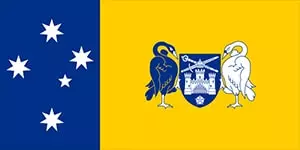 Australian Capital Territory
Australian Capital Territory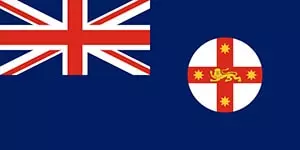 New South Wales
New South Wales Northern Territory
Northern Territory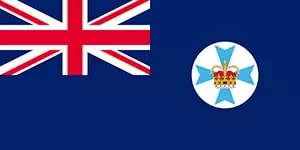 Queensland
Queensland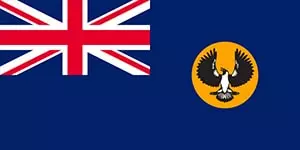 South Australia
South Australia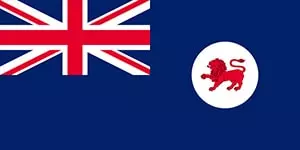 Tasmania
Tasmania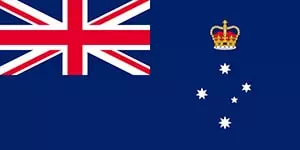 Victoria
Victoria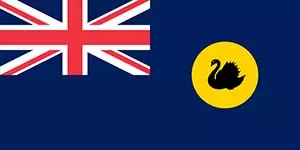 Western Australia
Western Australia